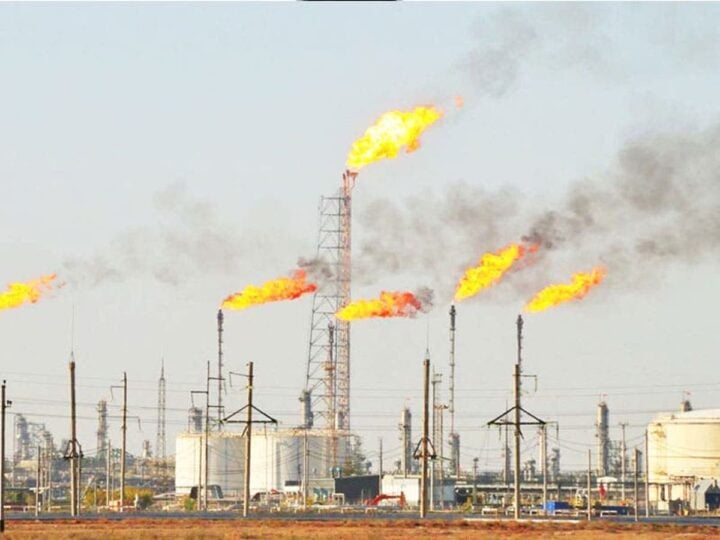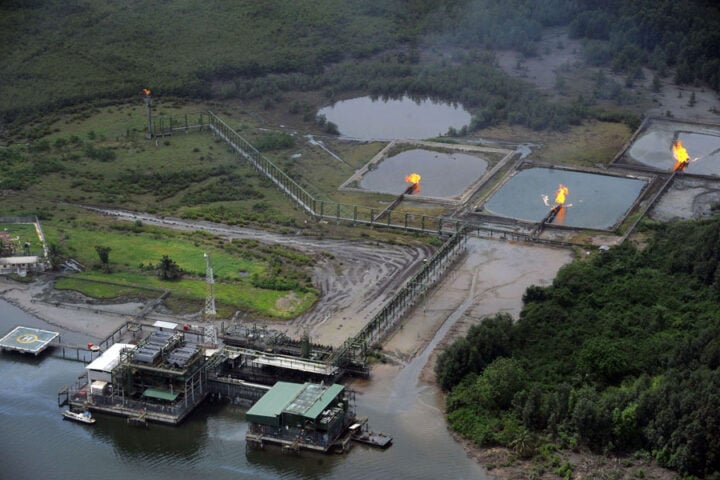The World Bank says Nigeria alongside Russia, Iraq, Iran, United States, Algeria and Venezuela are the top gas flaring countries in the world.
This is contained in the satellite data for 2020 compiled by the bank’s global gas flaring reduction partnership (GGFR) released on Wednesday.
The seven countries produce 40 percent of the world’s oil each year, but account for roughly two-thirds at 65 percent of global gas flaring.
Gas flaring is the burning of natural gas associated with oil extraction which results in a range of pollutants released into the atmosphere, including carbon dioxide, methane and black carbon.
Advertisement
According to the World Bank, methane emissions from gas flaring contribute significantly to global warming in the short to medium term, because methane is over 80 times more powerful than carbon dioxide on a 20-year basis.
It said gas flaring takes place due to a range of issues from market and economic constraints, to a lack of appropriate regulation and political will.
Commenting on the issue, Demetrios Papathanasiou, global director for the energy and extractives global practice at the World Bank, said: “In the wake of the COVID-19 pandemic, oil-dependent developing countries are feeling the pinch, with constrained revenues and budgets. But with gas flaring still releasing over 400 million tons of carbon dioxide equivalent emissions each year, now is the time for action.
Advertisement
“We must forge ahead with plans to dramatically reduce the direct emissions of the oil and gas sector, including from gas flaring”.
Zubin Bamji, program manager of the World Bank’s GGFR partnership trust fund, said: “Awareness of gas flaring as a critical climate and resource management issue is greater than ever before. Gas flaring reduction projects require significant investment and take several years to produce results.
“In the lead-up to the next UN Climate Change conference in Glasgow, we continue to call upon oil-producing country governments and companies to place gas flaring reduction at the center of their climate action plans.
“To save the world from millions of tons of emissions a year, this 160-year-old industry practice must now come to an end”.
Advertisement
In February 2021, Timipre Sylva, minister of state for petroleum resources, said: Nigeria is committed to achieving the global consensus on the elimination of gas flaring by 2025, adding that “today, we have actually reduced gas flaring significantly to a very minimal level of eight percent”.
TheCable had also reported how women in a community in Delta state are using the heat from gas flaring to dry tapioca.






